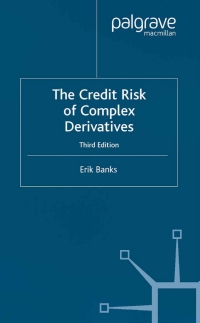Question
Discussion #3: The Struggle of Progress 33 unread replies.33 replies. Here is another opportunity to voice your opinion on not only a historical question, but
Discussion #3: The Struggle of Progress
33 unread replies.33 replies.
Here is another opportunity to voice your opinion on not only a historical question, but also a present-day issue. After you have finished the lecture videos from Units 11 & 12, please post your thoughts to the following discussion prompt:
Introduction
Frederick Douglass was an American social reformer, abolitionist, orator, writer, and statesman. After escaping from slavery in Maryland, he became a national leader of the abolitionist movement in Massachusetts and New York, gaining note for his oratory and incisive antislavery writings. Accordingly, he was described by abolitionists in his time as a living counter-example to slaveholders' arguments that slaves lacked the intellectual capacity to function as independent American citizens.
On August 3, 1857, Frederick Douglass delivered a West India Emancipation speech at Canandaigua, New York, on the twenty-third anniversary of the event. Most of the address was a history of British efforts toward emancipation as well as a reminder of the crucial role of the West Indian slaves in that own freedom struggle. However shortly after he began Douglass sounded a foretelling of the coming Civil War when he uttered two paragraphs that became the most quoted sentences of all of his public orations. Those two paragraphs follow:
Reading for Assignment
"Let me give you a word of the philosophy of reform. The whole history of the progress of human liberty shows that all concessions yet made to her august claims have been born of earnest struggle. The conflict has been exciting, agitating, all-absorbing, and for the time being, putting all other tumults to silence. It must do this or it does nothing. If there is no struggle there is no progress. Those who profess to favor freedom and yet deprecate agitation are men who want crops without plowing up the ground; they want rain without thunder and lightning. They want the ocean without the awful roar of its many waters."
"This struggle may be a moral one, or it may be a physical one, and it may be both moral and physical, but it must be a struggle. Power concedes nothing without a demand. It never did and it never will. Find out just what any people will quietly submit to and you have found out the exact measure of injustice and wrong which will be imposed upon them, and these will continue till they are resisted with either words or blows, or with both. The limits of tyrants are prescribed by the endurance of those whom they oppress. In the light of these ideas, Negroes will be hunted at the North and held and flogged at the South so long as they submit to those devilish outrages and make no resistance, either moral or physical. Men may not get all they pay for in this world, but they must certainly pay for all they get. If we ever get free from the oppressions and wrongs heaped upon us, we must pay for their removal. We must do this by labor, by suffering, by sacrifice, and if needs be, by our lives and the lives of others."
Discussion Questions
Do you agree with Douglass's assessment that without struggle there is not progress? (Struggle as in death, war, destruction, injury) Do you feel that those drastic measures are worth it for the sake of progress?
In your opinion, did the actions and arguments of the radical abolitionists help to end slavery or hinder the advancement of that cause?
In what way can Douglass's arguments above be applied to matters of social justice today?
Assignment Instructions
After reading the above passages, submit an original response that addresses the discussion questions above.
I want you to think deeply about this question and formulate a response to it in the form of a 250-300 word discussion post. Either way you answer you need to support yourself and defend your position with specific examples. You should refrain from using or relying on outside sources and instead should base your post and reply in your own thoughts supported by the lecture material and, if necessary, the textbook. I know what other authors think about this question, but I do not know what YOU think.
Once you have posted an original response to the question, read through your fellow classmates' responses and choose at least one to respond to (preferably someone who answered differently than you) in the form of a 100-150 word post.
A word of caution: we will treat people like people on this board. No trolling, no nastiness, and no inappropriate language.
Step by Step Solution
There are 3 Steps involved in it
Step: 1

Get Instant Access to Expert-Tailored Solutions
See step-by-step solutions with expert insights and AI powered tools for academic success
Step: 2

Step: 3

Ace Your Homework with AI
Get the answers you need in no time with our AI-driven, step-by-step assistance
Get Started


